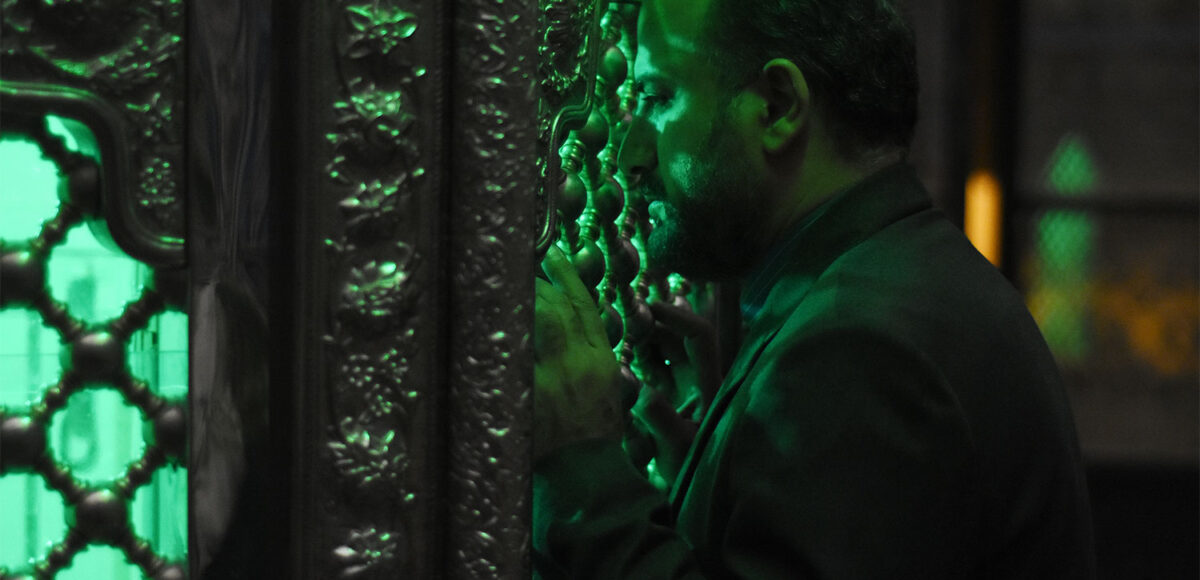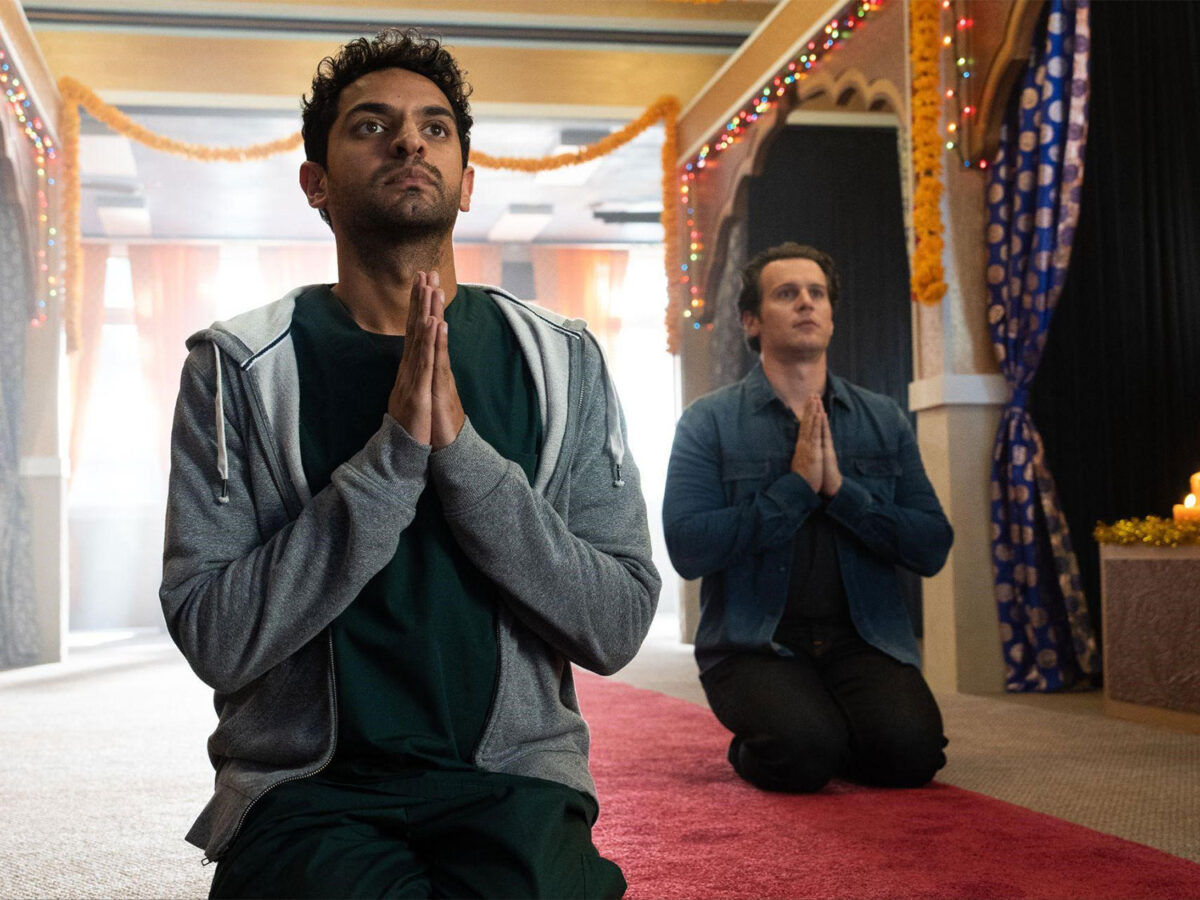Conceived in prison, executed in secret and resulting in exile, Mohammad Rasoulof’s latest film, “The Seed of the Sacred Fig,” carries significance far greater than what exists on screen. A winner at this year’s Cannes Film Festival, it sealed the fates of all who worked on it.
The precious sacred fig is born from another tree. The seed, slowly growing and nurtured by its host, spreads its roots and eventually strangles its parent. This is the hope and basis of Rasoulof’s amazing allegorical film taking place in 2022 during protests over the killing of Mahsa Jina Amini for not wearing her hijab in public.
Iman, head of household and much-admired lawyer of integrity and honesty, has just been promoted to investigating judge of the revolutionary court. His wife, Najmeh, is thrilled with the advance in status but also that they will soon be eligible for a bigger apartment in a more prestigious and protected part of town. Their daughters, teenage Sana and college student Rezvan, are more circumspect about what his promotion might mean to them because they rarely see their father.
It is the investigating judge who looks for the evidence necessary to convict those arrested for crimes, real or suspected. If the evidence doesn’t sustain the charge, the arrestee is released; if it does, the prisoner is sentenced by the revolutionary court. Although not the judgeship he aspired to, he is informed by his colleague and friend in the office that he was not viewed as a favorable ally to his new boss and he will have to prove himself. His first test is immediate. The prosecutor has demanded he attest that a prisoner is guilty of the crimes he is accused of committing. But what were the crimes? Confused and horrified, Iman explains that first he must investigate. No. His colleague informs him that his predecessor was fired for not doing as the prosecutor asked and he, too, will be fired if he doesn’t sign the paperwork for what will be a probable death sentence. There will be more prosecutions.
Students are protesting in the streets against the repressive hijab laws, against the premise of theocracy and strict patriarchy as represented by the government and its so-called revolutionary court.
The protests on the outside are becoming more and more violent and, by virtue of taking this job, he will be in danger. His family will, in time, be moved to more secure quarters but, in the meantime, he is given a gun for protection. Iman is frightened by what the gun represents and equally frightened by the reasons he must carry it. Aggression and self-protection are incompatible issues that inevitably will resolve in one direction. In a sense, that direction is what fuels the film.
Iman, returning home, hides the gun, and attempts to reestablish a normalcy that will never return because of his new position. He has acquiesced and will continue acquiescing to the wishes of the prosecutor and the state. Even his family is no longer a safe haven. The riots and protests are outside his door. Banners held by the students rail against the judicial system. Iman is now “them”; the daughters he rarely sees may be the “us”; his wife unsuccessfully straddles the two.
His job demands that new rules be established and the girls must remove themselves from all social media. His identity must be kept secret to ensure his safety and strangers may not enter the home. Despite this, Rezvan implores her mother to allow her only friend, Sadaf, to spend the night before the dorms open. Not pleased with a stranger in their midst, Najmeh insists that Sadaf be hidden, leave in the morning and not return. But complications ensue when all the schools and universities are shuttered. The protests become more volatile.
Iman becomes increasingly more paranoid, except it’s not really paranoia if they are out to get him. And soon he discovers that his gun is missing. The house is torn apart and still no gun. Has the increased pressure on him caused him to lose track of it? The consequences are enormous. If he reports the gun missing, he will lose his job and be sentenced to a minimum of three years in prison. Everyone is a suspect and the protests are coming closer and closer, louder and louder.
Rezvan and Sana, seemingly above the fray at home and on the street, discover that Sadaf has been shot by the police and is in desperate need of assistance; they cannot deny her. Bringing her back home, away from the presence of their increasingly distant and paranoid father, they patch up Sadaf, only to see her arrested, possibly to be killed in custody. Even Najmeh has a hard time seeing the value of assaulting a girl without sufficient cause. Iman becomes increasingly abusive as he becomes more distraught over the missing gun.
Rasoulof has cleverly, subtly positioned Iman as a representative of the patriarchy of his country. Benign neglect, banal evil, a ruler without an ear for the emotional and physical needs of his family, we follow his descent into the corruption bred of autocracy and fear of dissent. The missing gun and the search for it becomes his only focus, a metaphoric parallel to the regime and its insistence on condemning dissenters to death on the specious premise of crimes against God, a religion that is, by now, so perverted as to represent only the revolutionary hierarchy, a false idol.
“The Seed of the Sacred Fig” is a metaphor for the nascent, by now smothered, hijab rebellion against the patriarchy told using the family unit of Iman as a metaphor for descent into the insanity of that very patriarchy. As depressing and soul-crushing as the movie is at first glance, it is ultimately a film of great optimism. No matter how hard an autocracy, in this case also a theocracy, tries to kill dissent (and dissenters), the center will not hold, cannot hold. It will eventually crater to the needs of the people as the rules become almost nonsensical in an effort to quash even the most mundane opposition.
The cast, almost all of whom will be unknown to an American audience, is superb. Most notable is Missagh Zareh who portrays Iman as a man who viewed his integrity and honesty as his hallmark who descends all too quickly into the corruption that came with abandoning his values for the money, status and prestige of a job from which there was no escape. He changes before your eyes from confused citizen and father to petty, dangerous martinet. Mahsa Rostami as Rezvan plays the benign catalyst who sets much in motion by just trying to do good. Setareh Maleki (Sana) coyly plays into the background until she comes acutely into focus. Soheila Golestani is a conflicted Najmeh, blindly obedient to her husband as society demands until she must choose between him and her daughters. The cinematographer, Pooyan Aghababaei, captures the contradictory beauty of Iran with the ugliness of the police state, incorporating phone footage from the actual protests as they were occurring.
Banned in Iran and filmed in secret, “The Seed of the Sacred Fig” is Germany’s submission for Best International Feature Film at the 97th Academy Awards. Certainly a wild stretch of the rules on what constitutes an entry in that category, Germany is the country to which Rasoulof fled in secret, hours before the police came to take him to prison. It is hoped that the actors and crew of the film were also able to find asylum, although Zareh and Golestani have been detained in Iran. Whether entered as an international film or as a “Best Picture” candidate, there is no doubt that this is one of the very best and most significant films of this or any other year. Its 168 minutes flies by as you are gripped by the action of this psychological thriller.
In Farsi with English subtitles.
Opening Nov. 27 at the AMC Century City.
Neely Swanson spent most of her professional career in the television industry, almost all of it working for David E. Kelley. In her last full-time position as Executive Vice President of Development, she reviewed writer submissions and targeted content for adaptation. As she has often said, she did book reports for a living. For several years she was a freelance writer for “Written By,” the magazine of the WGA West, and was adjunct faculty at USC in the writing division of the School of Cinematic Arts. Neely has been writing film and television reviews for the “Easy Reader” for more than 10 years. Her past reviews can be read on Rotten Tomatoes where she is a tomato-approved critic.







